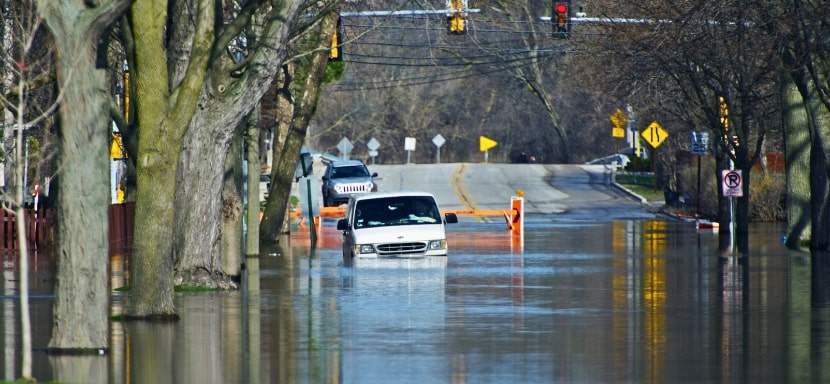How to Survive a Worldwide Communications Breakdown

Imagine waking up to silence. Your phone doesn’t buzz, your email won’t load, and even your local radio station crackles with static. A worldwide communications breakdown has hit. What next? For many, this doomsday scenario may sound like the opening lines of a dystopian novel, but losing our interconnected systems isn’t just fiction—it’s a genuine possibility that could happen faster than we think. Whether due to cyberattacks, solar flares, or natural disasters, such doomsday survival scenarios are becoming an increasing concern.
In today’s hyper-connected world, we’ve grown dependent on the conveniences of instant communication. Yet, what happens when the devices and networks we rely on fail? Without preparation, panic can quickly set in, communities can become isolated, and misinformation may spread unchecked. While the idea is unsettling, it doesn’t mean all hope is lost.
Key Takeaways
- Be Prepared: Stock up on essentials and analog tools.
- Build Community: Connect with neighbors for support.
- Stay Resourceful: Adapt and thrive without tech.
What is a Worldwide Communications Breakdown?
A worldwide communications breakdown is a large-scale failure of the systems that keep the world connected. These systems include the Internet, cell networks, satellites, and radio communications. When they stop working, they disrupt everything from personal communication to critical infrastructure, such as emergency services, banking, and transportation.
This kind of breakdown can be triggered by a variety of events, such as:
- Cyberattacks: Hackers targeting major communication networks.
- Solar Storms: Electromagnetic pulses from the sun disrupting satellites and power grids.
- Natural Disasters: Hurricanes, earthquakes, or wildfires damaging communication infrastructure.
- Geopolitical Conflicts: Intentional attacks on communication systems during wars or crises.
In such a scenario, basic tasks—like contacting loved ones, accessing news, or withdrawing money—become impossible. While this may sound like the premise of a movie, these breakdowns are not far-fetched. They’ve happened on smaller scales and could happen globally under the right conditions.
Understanding the consequences of a worldwide communications breakdown is essential. It helps us prepare for the challenges it presents, stay calm in the face of uncertainty, and develop practical strategies to adapt and survive when modern communication tools fail.
10 Quick Tips on How to Survive a Worldwide Communications Blackout
Quick and practical actions can make all the difference in navigating a worldwide communications blackout. Preparation, adaptability, and community collaboration are essential to thriving when the lines go silent.
Here are ten quick tips to help you survive such a scenario:
- Stockpile Essentials: Keep non-perishable food, clean water, and hygiene products readily available.
- Invest in Analog Tools: Equip yourself with paper maps, a compass, and a battery-powered AM/FM radio.
- Learn Basic Communication Methods: Familiarize yourself with Morse code, hand signals, and written notes.
- Gather Backup Power Sources: Power critical tools with solar chargers or hand-crank devices.
- Strengthen Community Ties: Work with neighbors to establish a local communication network.
- Use Walkie-Talkies: Invest in short-range communication devices with extra batteries.
- Stay Informed Locally: Listen to emergency broadcasts and observe your environment for signs of danger.
- Practice Self-Reliance: Learn survival skills like fire-starting, water purification, and first-aid.
- Stay Calm and Focused: Panic leads to poor decisions—prioritize safety and think critically.
- Prepare for the Long Haul: Plan for weeks or months without digital communication by rationing supplies and building resilience.
How to Prepare for the Worst
When facing the possibility of a worldwide communications breakdown, preparation is your best defense. Taking steps ahead of time can mean the difference between chaos and calm. By gathering essential supplies, learning key survival skills, and creating a plan, you can build a foundation of resilience to weather any storm.
Gather Essential Supplies
Think of it as prepping for a camping trip without Wi-Fi. Stock up on:
- Non-perishable food and water (at least a two-week supply).
- A manual can opener is needed because no apps can open cans.
- First-aid kits, medications, and hygiene products.
- Solar-powered or hand-crank flashlights.
Go Analog
Your smartphone might become an overpriced paperweight. Equip yourself with:
- Paper maps of your area.
- A battery-powered AM/FM radio to get news updates (assuming stations still broadcast).
- Notebooks, pens, and pencils for recording important information.
Did You Know?
Undersea internet cables—responsible for carrying 99% of global data—could be vulnerable to sabotage or natural disasters during a worldwide communications breakdown. These cables, stretching over 1.3 million kilometers across oceans, are fragile and lack significant protection. A single break in key areas could disrupt internet access for entire continents, further isolating regions during a crisis. Despite their critical importance, many people are unaware of their existence or how vital they are to global connectivity.
Stay Connected Without Technology
When technology fails, creativity becomes your greatest ally. Simple, analog methods and strong local connections can keep you communicating and collaborating effectively.
Build a Local Network
In a breakdown, neighbors become lifelines. Work on:
- Establishing trust within your community.
- Sharing resources, skills, and plans.
- Creating a meet-up point or a “community board” for messages.
Learn Basic Communication Methods
Modern conveniences aside, human ingenuity shines when it’s needed most. Try:
- Learning Morse code or basic semaphore signals.
- Using whistles, mirrors, or even smoke signals in emergencies.
- Carrying walkie-talkies with extra batteries for short-range communication.
Staying Informed in a World Gone Quiet
Without modern technology, staying informed means relying on traditional methods like radios, observation, and community updates to navigate the silence.
Read the Environment
Nature has its own way of keeping you in the loop. Birds flying in odd patterns or sudden silence can indicate nearby danger. Staying observant is a skill worth sharpening.
Rely on Traditional Media
If any radio or TV stations survive, they’ll be your primary source of information. Tune in regularly but remain critical of unverified news.
Practical Survival Strategies
In a crisis, survival comes down to preparation, adaptability, and using available resources wisely to stay safe and secure.
Resourcefulness Is Key
Can’t buy your morning coffee? Learn to make it on a campfire. Need to fix something? Upcycling and DIY skills will serve you well.
Plan for Shelter and Safety
Make sure your home is secure and can withstand weather or external threats. If you must evacuate, have a predetermined route and destination.
Stay Calm and Collected
Panic helps no one. Focus on tasks you can control, like rationing supplies, building shelter, or comforting those around you.
How to Survive a Worldwide Communications Breakdown
A worldwide communications breakdown can teach us a surprising lesson: We are far more capable and resilient than we think. Without constant notifications and digital noise, we can reconnect with each other—and ourselves—in meaningful ways.
FAQs
What is a worldwide communications breakdown?
A scenario where global communication systems, such as the internet, phones, and satellites, fail due to various reasons like cyberattacks or natural disasters.
How can I prepare ahead of time?
Stockpile essential supplies, learn basic survival skills, and establish a local network of trusted people.
What tools are most useful?
Analog tools like paper maps, battery-powered radios, and walkie-talkies are invaluable.
How do I communicate without phones or the internet?
Use handwritten notes, whistles, and walkie-talkies to connect with others nearby.
What are the emotional challenges of a breakdown?
Fear and isolation are common, but staying calm, focused, and humorous can help keep morale high.
Can humor help in a crisis?
Absolutely. Finding light in dark situations can ease tension, create bonds, and boost mental health.
Conclusion: Surviving a Worldwide Communication Breakdown
Surviving a worldwide communications breakdown isn’t just about stockpiling goods—it’s about building skills, fostering community, and embracing adaptability. By preparing now, you’ll survive the chaos and thrive in it.
Uncommon Facts About a Worldwide Communications Breakdown
A worldwide communications breakdown is a rare but catastrophic event that would impact daily life in surprising ways. While most people focus on the immediate loss of technology, there are lesser-known consequences and scenarios worth understanding. Here are some uncommon facts to expand your perspective:
- Submarine Cables Are Vulnerable: Undersea internet cables, which handle most of the world’s data, are highly exposed to sabotage, natural disasters, and ship anchors. A severed cable in a critical location could isolate entire countries.
- Solar Storms Can Destroy Satellites: Intense solar activity, such as coronal mass ejections (CMEs), can damage or destroy satellites, disrupting GPS, internet, and global communications for months.
- Your Car May Not Work: Many modern cars rely on GPS and computer systems that could fail during a breakdown, leaving you stranded.
- Misinformation Could Spread Rapidly: Without official news sources, rumors and false information can spread unchecked, creating panic and distrust in the community.
- Emergency Services May Shut Down: Without communication networks, coordinating emergency responses becomes almost impossible, leaving people to rely on local resources and self-reliance.
- Banking Systems Would Be Paralyzed: Most banking operations depend on internet connectivity. A communications breakdown could make accessing money, making payments, or managing transactions impossible.
- Ham Radios Could Become Lifesavers: Amateur radio operators could become vital for sending and receiving information when all other systems fail.
- Weather Forecasting Would Be Severely Impacted: Satellites that monitor weather patterns could go offline, making it impossible to predict storms, hurricanes, or other natural disasters.
- Military Operations Could Be Affected: Countries depend on communication networks for defense and strategy, meaning a breakdown could compromise national security.
- The Psychological Toll Would Be Enormous: The sudden isolation caused by a communications blackout could lead to widespread anxiety, depression, and feelings of helplessness among individuals and communities.
More Doomsday Scenarios
How to Survive a Worldwide Economic Collapse
When we hear “economic collapse,” it conjures images of chaos, scarcity, and instability. While the…
How to Survive a Robot Uprising
Robots: one minute they’re cleaning our homes or delivering pizza, and the next, they’re plotting…
How to Survive a Totalitarian Regime
In a world where governments control everything from curfews to thoughts, knowing how to…
How to Survive an EMP Attack
Imagine waking up to find your entire world plunged into darkness—no electricity, no functioning…
How to Survive a Drone Attack
In today’s world, the threat of drone attacks is increasingly becoming a reality. These unmanned aerial…
Recent Survival Posts
How to Survive a Layoff
Layoffs feel personal—even when they’re not. One day, you’re responding to Slack messages and forwarding…
How to Survive a Drug Test
I never imagined I’d be so emotionally invested in a paper cup. But there I was, standing under the fluorescent…
How to Survive an Interrogation
If you’ve ever been caught in the crosshairs of an overly enthusiastic mall cop or stared down by someone…
How to Survive a Nightclub Shooting
Nightclubs pulse with life—lights flashing, music pounding, bodies packed tight on the dance floor. It’s a place to…
How to Survive a Bachelor Party
A bachelor party is a delicate mix of celebration, chaos, and questionable decision-making, wrapped…
More Doomsday Survival Scenarios

How to Survive a Robot Uprising
Robots: one minute, they’re cleaning our homes or delivering pizza, and the next, they’re plotting global domination. How did we get here? Somewhere between asking Alexa for the weather and teaching AI to write poetry, we gave machines just enough intelligence to turn...

How to Survive a Totalitarian Regime
In a world where governments control everything from curfews to thoughts, knowing how to survive a totalitarian regime is crucial. History shows us that such regimes crush freedoms, spread fear, and twist truth into propaganda. But don't panic—if people survived in...

How to Survive an EMP Attack
Imagine waking up to find your entire world plunged into darkness—no electricity, functioning vehicles, or communication. This is the terrifying reality of an EMP (electromagnetic pulse) attack. It can strike without warning, and when it does, it affects more than...

How to Survive a Drone Attack
In today's world, the threat of drone attacks is increasingly becoming a reality. These unmanned aerial vehicles (UAVs) are used for surveillance, military operations, and commercial purposes. However, in the wrong hands, they can become tools of destruction....

How to Survive a Supervolcano Eruption
How to Stay Safe During a Supervolcano Eruption A supervolcano eruption can spew over 1,000 cubic kilometers of ash and lava, altering the climate and affecting life worldwide—are you prepared to survive it? Surviving a supervolcano eruption may sound like something...
More Survival Scenarios

How to Survive a Layoff
When the Floor Falls Out: The Reality of a Layoff Layoffs feel personal—even when they're not. One day, you're responding to Slack messages and forwarding emails. Next, you're staring at your monitor as it logs you out... for good. Whether it's a restructuring, a...

How to Survive a Drug Test
The Cup, The Room, The Truth I never imagined I’d be so emotionally invested in a paper cup. But there I was, standing under the fluorescent hum of a strip-mall clinic, trying to recall the last time I ate a poppy seed bagel. That’s the thing about drug tests—they...

How to Survive an Interrogation
If you've ever been caught in the crosshairs of an overly enthusiastic mall cop or stared down by someone in a uniform with a clipboard and a glare, you’ve felt it — the chilly fingers of interrogation anxiety. And while most of us imagine interrogation scenes as...

How to Survive a Nightclub Shooting
Nightclubs pulse with life—lights flashing, music pounding, bodies packed tight on the dance floor. It’s a place to escape, feel the rhythm, and lose yourself in the crowd. But that same energy can turn deadly in seconds, transforming a night of fun into one of the...

How to Survive a Bachelor Party
A bachelor party is a delicate mix of celebration, chaos, and questionable decision-making, wrapped in the noble intention of sending the groom off into married life with a night he’ll (hopefully) remember. It’s a ritual as old as time—well, as old as men deciding...

How to Survive Your First Time at the Gym
Walking into a gym for the first time can feel like stepping into an alien world. The machines hum with purpose, the regulars move confidently, and you’re left standing there, clutching your water bottle, wondering whether you’re in the right place—or on the right...

How to Survive a Flash Flood While Driving
Surviving a flash flood while driving requires quick thinking, calmness, and a solid plan to ensure your safety. Preparation can make all the difference between a close call and a catastrophe in emergencies like this. This guide provides practical advice to protect...

How to Build an Emergency Kit
Emergencies don’t knock politely at the door. They barge in, uninvited, like a distant relative with a penchant for drama, turning your world upside down without warning. Whether it’s a power outage, a natural disaster, or an unexpected evacuation, the key to staying...

How to Protect Yourself From Insects in the Wild
There’s nothing like being out in the wild—birdsong echoing through the trees, the fresh scent of earth, and a deep sense of peace that makes you think, “Ah, this is what life is about.” But then comes the buzzing. Mosquitoes, ticks, and flies swoop in like uninvited...

How to Survive a Mountain Lion Attack
Surviving a mountain lion attack might feel like something straight out of a survival movie—an adrenaline-pumping showdown between man and beast. But as more people venture into wild spaces and embrace the untamed beauty of nature, these wild frontier survival...
